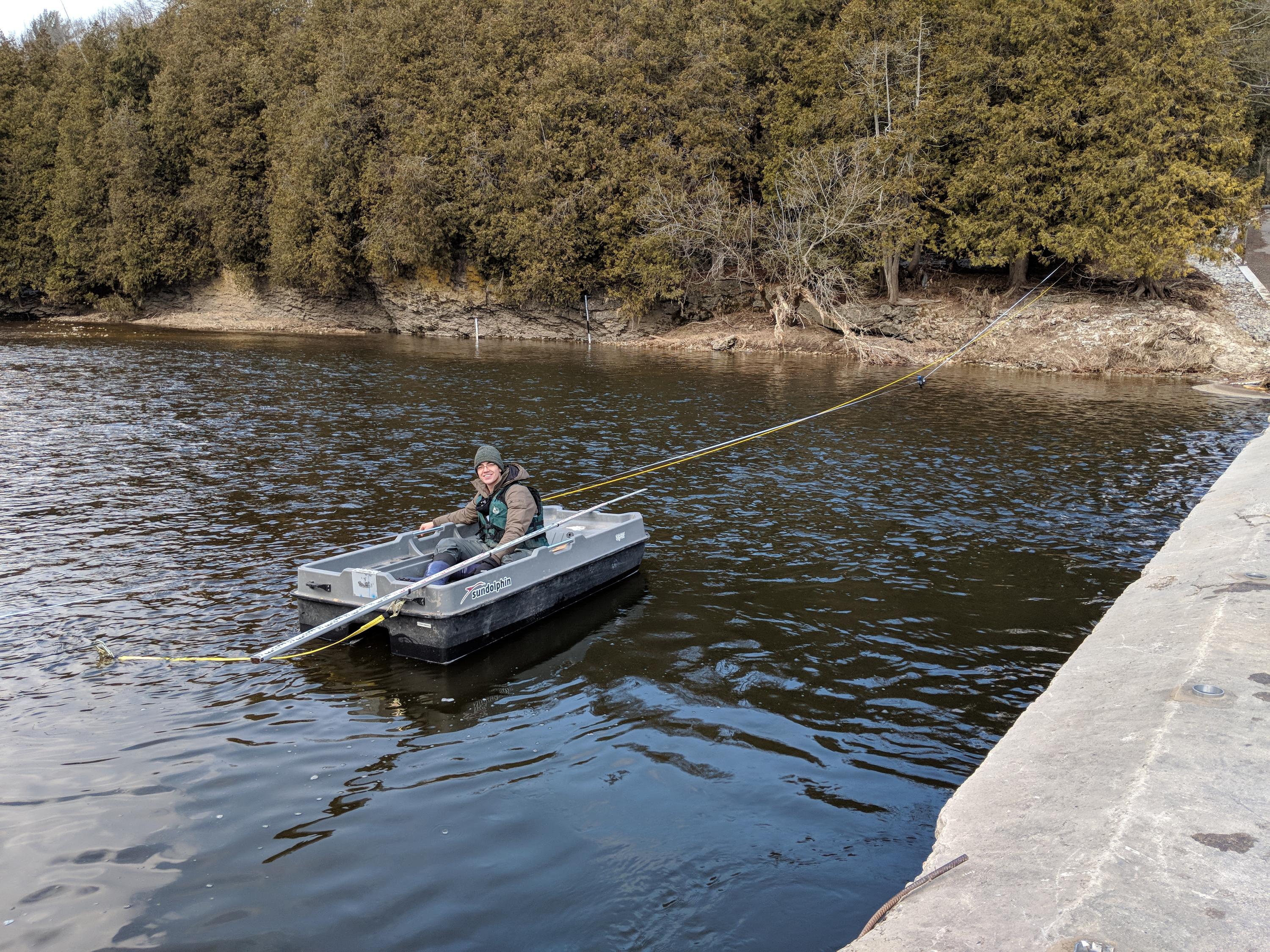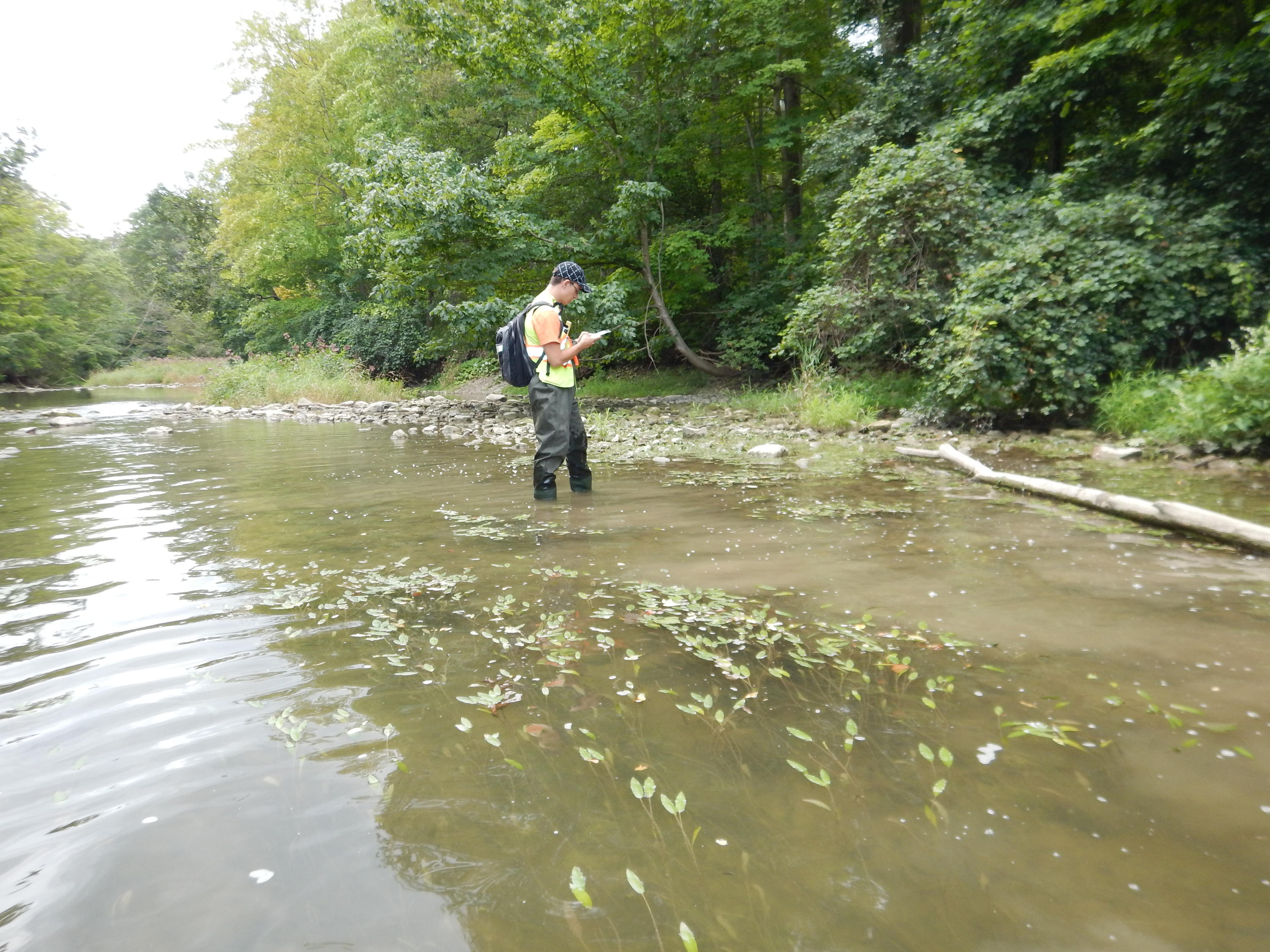When you learn about Waterloo’s Collaborative Water Program, you will learn that there is a heavy focus on interdisciplinarity – bringing together students from 11 departments and schools under the umbrella of water to learn from, and share with, one another. No doubt you’ll read that one of the benefits is understanding the perspectives from different disciplines and how to work alongside natural scientists, engineers, mathematicians and social scientists. However, something that’s not written down in any brochure, is how much fun this program can be for graduate students. This was one of the best things about the program for 2017 Civil and Environmental Engineering graduate, Robert Chlumsky.
“You have the chance to meet people from other faculties and research groups during autumn orientation, and you have the opportunity to explore the Grand River in a canoe,” said Chlumsky. “You make real friends and connections, and it makes the entire graduate student experience much more enjoyable.”

Chlumsky was introduced to the water through his Environmental Engineering undergraduate degree. He enjoyed the natural side of the program so much that he decided to pursue further education, furthering his knowledge of this important environmental resource.
“The uncertainty of the natural environment makes it a very challenging and exciting field with lots of dynamic parts to understand,” said Chlumsky. “Not to mention the chance to work outdoors makes it more enjoyable.”
Chlumsky currently works as a Water Resources Engineering Intern within the Waterloo Region at Ecosystem Recovery Inc., where he applies the knowledge he gained from the Collaborative Water Program on a daily basis.
“Prior to the Collaborative Water Program, water governance was perhaps most peripheral to my understanding of water,” said Chlumsky. “In my current role, I am frequently working with guidelines provided by Conservation Authorities and Municipalities that need to be considered in design work, as well as prepare materials for Public Information Centre meetings. The Collaborative Water Program did an excellent job providing me with a basic knowledge on water governance and the importance of public consultation, which will certainly be used on the upcoming Public Information Centre preparations.”

The experience Chlumsky had in the Collaborative Water Program goes far beyond understanding the benefits of interdisciplinary teams –
it broadened his perspective on issues and approaches to solving water problems which have been advantageous in his new role.
“Any serious water practitioner or student should consider enrolling in the Collaborative Water Program to broaden their horizons and understand more about roles other than their own. No water practitioner can operate alone, and this makes it crucial to understand the perspective and piece of the puzzle filled by every other type of water practitioner if one wishes to be successful in the workplace. In addition, graduate life is too short to miss canoeing the Grand.”